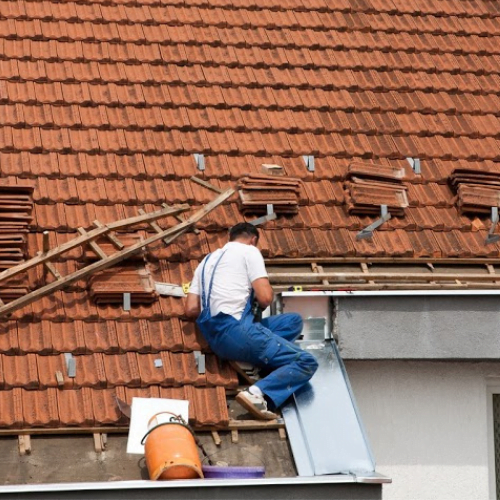Let’s face it, our roofs don’t exactly scream “glamorous.” But these unsung heroes silently shield us from the harsh Aussie elements. That’s why, just like your car needs a regular tune-up, your roof needs an inspection to keep it in tip-top shape. Here’s why a roof inspection is a crucial first step before diving into roof restoration services in Melbourne.
Why Choose a Roof Inspection?
Think of a roof inspection as a health check for your roof. It’s a proactive way to identify any potential problems early on, before they snowball into major (and expensive) repairs down the track. Here’s the thing: small issues left unattended can quickly morph into leaks, structural damage, and even safety hazards. A timely inspection can nip these problems in the bud, saving you money and headaches in the long run.
Different Types of Roof Inspections
There are two main types of roof inspections to consider:
General Inspection: This is a great all-rounder, suitable for any roof, regardless of age or condition. It involves a thorough visual assessment of your roof’s components, including tiles, flashings, valleys, gutters, and penetrations (think chimneys, skylights, etc.). The inspector will be looking for signs of wear and tear, loose or missing tiles, rust, water damage, and any potential weak points.
Pre-purchase Inspection: If you’re buying a new home, a pre-purchase inspection is a must-do. It gives you a clear picture of the roof’s condition, which can be a valuable bargaining chip when negotiating the price.
Benefits of Getting a Roof Inspection
There are several advantages to scheduling a regular roof inspection:
Early Detection of Problems: Catching small issues early on can save you a significant amount of money in the long run. Think of it like fixing a small cavity compared to a full-blown root canal!
Peace of Mind: Knowing your roof is in good nick gives you peace of mind and allows you to sleep soundly at night, especially during those heavy Melbourne downpours.
Maximises Roof Lifespan: Regular inspections and prompt repairs help extend the lifespan of your roof, potentially saving you from a costly roof replacement down the line.
Boosts Property Value: A well-maintained roof with a clean bill of health from a recent inspection can be a major selling point when it comes time to put your house on the market.
Steps Involved in a Typical Roof Inspection
Here’s a quick rundown of what to expect during a roof inspection:
Initial Consultation: You’ll discuss your concerns and the inspector will get a general idea of your roof’s age, material, and any previous repairs.
Safety First: The inspector will prioritize safety by checking access points and wearing appropriate safety gear.
Close-Up Examination: Expect a meticulous inspection of all your roof’s nooks and crannies, including tiles, valleys, flashings, and penetrations.
Photographic Evidence: The inspector will likely take photos to document any problems they find.
Clear Communication: After the inspection, the inspector will explain their findings in a clear and concise way, outlining any necessary repairs or recommendations.
Written Report: You’ll typically receive a detailed written report outlining the condition of your roof, any recommended repairs, and a cost estimate for the work (if applicable).
Conclusion
A roof inspection is a small investment that can prevent major headaches (and expenses) down the road. By identifying and addressing problems early on, you can ensure your roof continues to protect your home and family for years to come. So, don’t delay, schedule a roof inspection with a reputable company specializing in roof restoration services in Melbourne today!
FAQs
How often should I get a roof inspection?
It’s generally recommended to get a roof inspection every 2-3 years, or more frequently if you live in an area prone to harsh weather conditions or your roof is nearing the end of its lifespan.
What are some signs that my roof might need an inspection?
Keep an eye out for warning signs like missing or damaged tiles, rust, sagging, leaks, or excessive moss growth. If you notice any of these, it’s best to get a professional inspection ASAP.

